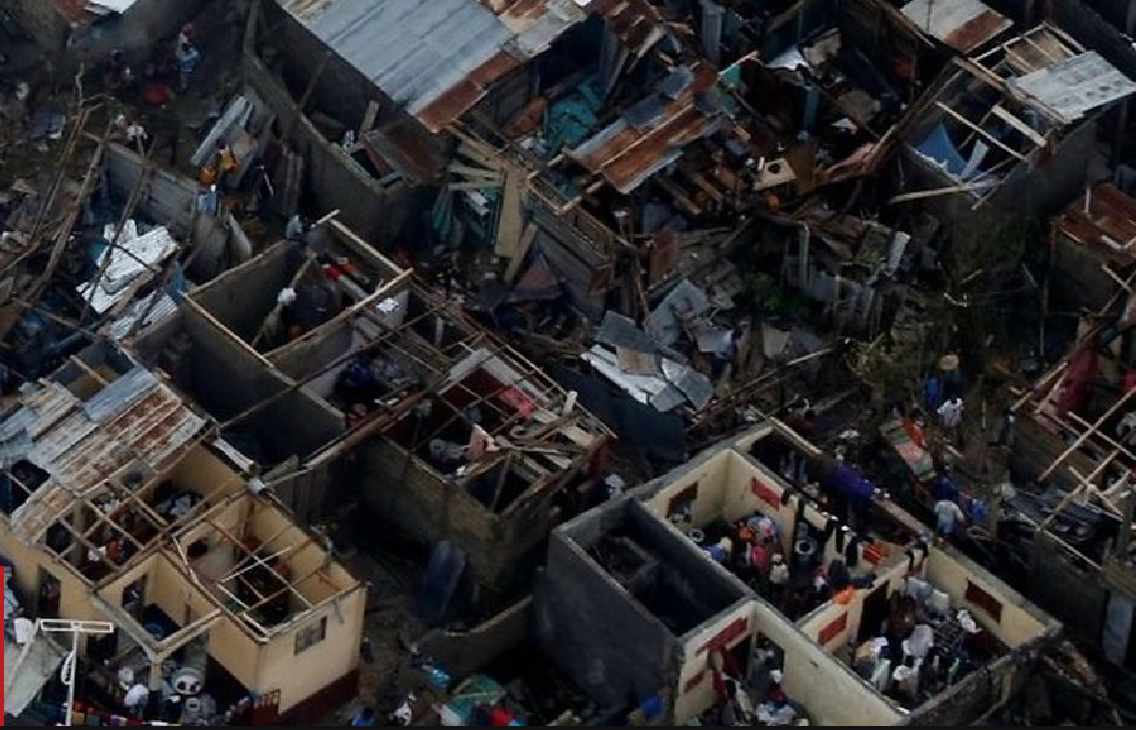The death toll in Haiti as a result of Hurricane Matthew – the most powerful Caribbean storm in a decade – has soared to more than 300, officials say.
Some 50 people were reported killed in the town of Roche-a-Bateau alone.
The nearby city of Jeremie saw 80% of its buildings levelled. In Sud province 30,000 homes were destroyed.
The hurricane, now a Category Three storm with sustained winds of 120mph (193km/h), is heading towards the US state of Florida.
At 03:00 local time (07:00 GMT) Matthew was still off the Florida coast, centred about 37 miles (60km) east of Vero Beach and was moving north-west at about 14mph (22km/h), the National Hurricane Center said.
Hurricane Matthew has pounded the Bahamas after slicing through Haiti and Cuba.
Trees and power lines were reportedly down in the Bahamas but no fatalities were reported.
Most of the deaths in Haiti were in towns and fishing villages around the southern coast, with many killed by falling trees, flying debris and swollen rivers.
The storm passed directly through the Tiburon peninsula, driving the sea inland and flattening homes with winds of up to 230km/h (145mph) and torrential rain on Monday and Tuesday.
The collapse of an important bridge on Tuesday had left the south-west largely cut off.
Non-governmental organisations said phone coverage and electricity were down and people were running out of food and water.
The BBC’s Tony Brown in south-western Haiti said he had seen people trying to cope with the mass destruction on their own, trying to rebuild from the rubble but without the help of the army or police.
Les Cayes resident Jean Joseph described the scene in his town – one of the worst-hit – as “complete devastation”.
“What’s going on right now is a lot of people are walking around,” he told the BBC.
“They have no home. A lot of them – they’re just walking around. I don’t know what they’re going to do.”
Across the country, there were some 350,000 in need of assistance, according to the UN Office for the Co-ordination of Humanitarian Affairs.
A spokesperson for the American Red Cross, Suzy DeFrancis, said the first priority was to get phone networks across the country back up and running.
“We will bring in technology to help do that,” she said.
Source: BBC NEWS

